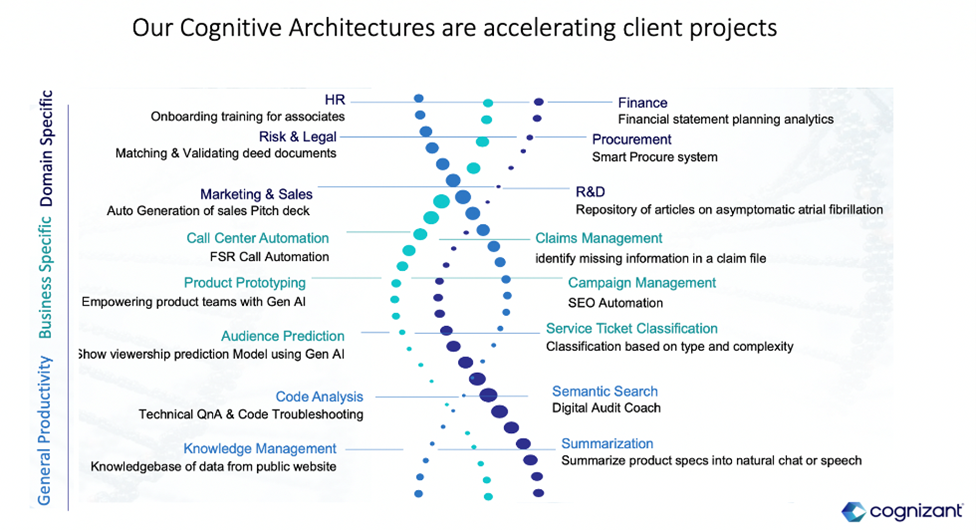Since the launch of ChatGPT, more than 600 Gen AI tools have hit the market. Development is incredibly fast and no industry will remain the same for much longer; independently of industry, Gen AI creates end-to-end impacts across the whole enterprise. Customer, employee and supplier experiences will all be significantly changed.
What’s the status within the manufacturing and logistics industries regarding Gen AI then? Gen AI enables you to reimagine key processes and holds immense potential in these industries. Among our customers, we see that top Gen AI applications are about transforming manufacturing processes, improving quality control, AI-driven automation, streamlining supply chains, AI-driven predictive maintenance and improving demand forecasting.
Key challenges of Gen AI in manufacturing
While the potential advantages are several – like higher efficiency, lower downtime, cost reductions, enhanced safety, better decision-making and boosted innovation capabilities – challenges aren’t missing though. Many of them are linked to data; collecting and managing vast amounts of data required for AI applications is complex. Ensuring data quality, security, and compliance with regulations is crucial to succeed.
Furthermore, integrating AI into legacy infrastructure can be complex and expensive. Adhering to industry-specific regulations and standards while implementing AI solutions can be a regulatory challenge. Safety is another concern; as AI systems become more integrated into operations, they can become targets for cyberattacks. Workforce transition, with reskilling and upskilling of the workforce, is also an essential part that needs to be addressed. On top of it, you need to consider privacy and ethical matters too.
Get going with Gen AI
What to do then? Readiness and architectural transition are critical for the long term to unlock data assets, assure AI usage at scale and increase change delivery effectiveness. We suggest you start with the following:
· Operations and architecture. Exploit existing enterprise data to drive domain-specific AI applications. Re-imagine the change delivery process to de-risk and accelerate the overall transformation.
· Supplier relationships. Collaboratively develop more productive working models with key suppliers, jointly addressing generative AI opportunities, risks, liabilities, dependencies and incentives.
· Customer propositions and experiences. Begin research, prototyping and piloting now on disruptive Gen AI concepts to hedge against competitors and new entrant threats.
· Employee experience and effectiveness. Definitively address risk, policy and access control issues. Educate and enable staff to benefit from existing generative solutions that can drive productivity.
Amid all the noise, the overarching message is clear: Gen AI will change everything, so most importantly – get going. Even a relatively small-scale initiative will help create a framework for the leadership, governance and processes that must be in place as Gen AI matures and expands.
To accelerate, establishing a strategic partnership might be helpful. Cognizant has the ability and deep tech knowledge to contextualize Gen AI in any industry. Currently, we have 150+ Gen AI clients from every market sector and all major regions. From our client engagements and 360 unique generative application ideas, we have developed four repeatable offerings that we call Cognitive Architectures that accelerate clients’ time to value.

As part of our AI efforts, we also launched the Neuro AI platform in May this year, aimed at helping enterprises adopt Gen AI technology and harness its business value. Further, we will invest $1 billion in Gen AI over three years, covering platform, personnel, partnerships, information technology (IT), and mergers and acquisitions.
To learn more, visit the manufacturing section of our website.
Our experts are contributing with exciting insights about what is going on within technology and innovation.















